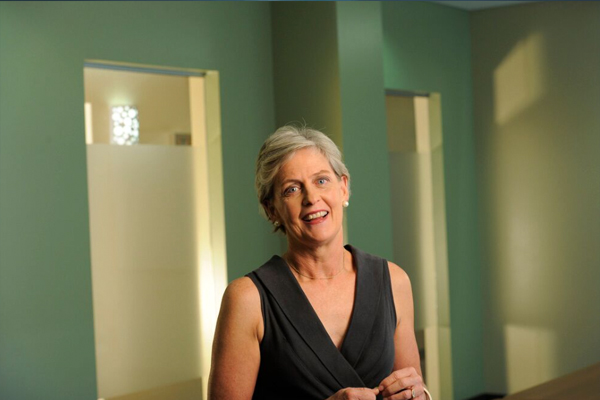Jeannie Ritter, Mental Health Ambassador
As Colorado’s first lady from 2007 to 2011, Jeannie Ritter used her platform to advocate for mental health. She continues this role as Mental Health Ambassador at the WellPower. Every year she speaks at hundreds of businesses, civic organizations, faith-based groups, chamber meetings and community gatherings.
I used to say I chose mental health as the issue I would champion because I had been a classroom teacher for children with severe challenges, and because I had a sister with a bipolar diagnosis. But my answer has changed. Now, it’s about the whole family—everybody’s family. Look at family photos and you’ll see loved ones who have experienced substance use, anxiety, depression and more.
Mental health is an issue about which we all must talk. While national tragedies have raised our level of awareness I remain hopeful of progress. Young people demonstrate a greater comfort level in sharing their challenges and concerns. Our leaders have greatly increased their ability to speak about mental health. Science continues to inform the conversation in robust ways.
I do this work because the WellPower sees the value of a voice helping to change the community norm on behavioral health. This effort parallels our cutting-edge work in infant mental health, early childhood, children and families, emerging adults, adults and seniors. My role is to be in the community having conversations about policy, science, normalizing the issue, and talking about hope.
We still need to address stigma. But now, when we talk about the continuum of mental health, we can talk about wellness and well-being. We have a larger vocabulary and this means it’s getting easier to have the conversation.
In my work, I see many breakthroughs. RTD is a great example, and my most exciting project. When RTD operators take safety trainings, the number one request on feedback evaluations is how they can better serve riders with mental health challenges. RTD is important because people with mental illness tend to isolate when they aren’t doing well. When they begin to recover and re-enter the community, we want them to be confident using public transportation for appointments, work, or connecting with people. RTD operators can help folks reach recovery in simple ways like acknowledging their customers by name. RTD’s leaders see this as an issue of equal access. We are working with them on a training component.
Often I say all roads lead to mental health. Whether it’s mainstream health care, targeting obesity, or grade-level reading… whether it’s early childhood education, folks experiencing homelessness, or the criminal justice system, even workplace productivity; people realize that we have to incorporate the conversation about behavioral health in order to successfully meet our outcomes.
When we are informed about the prevalence of mental illness, and when we understand that people can and do recover, we can better practice compassion.


